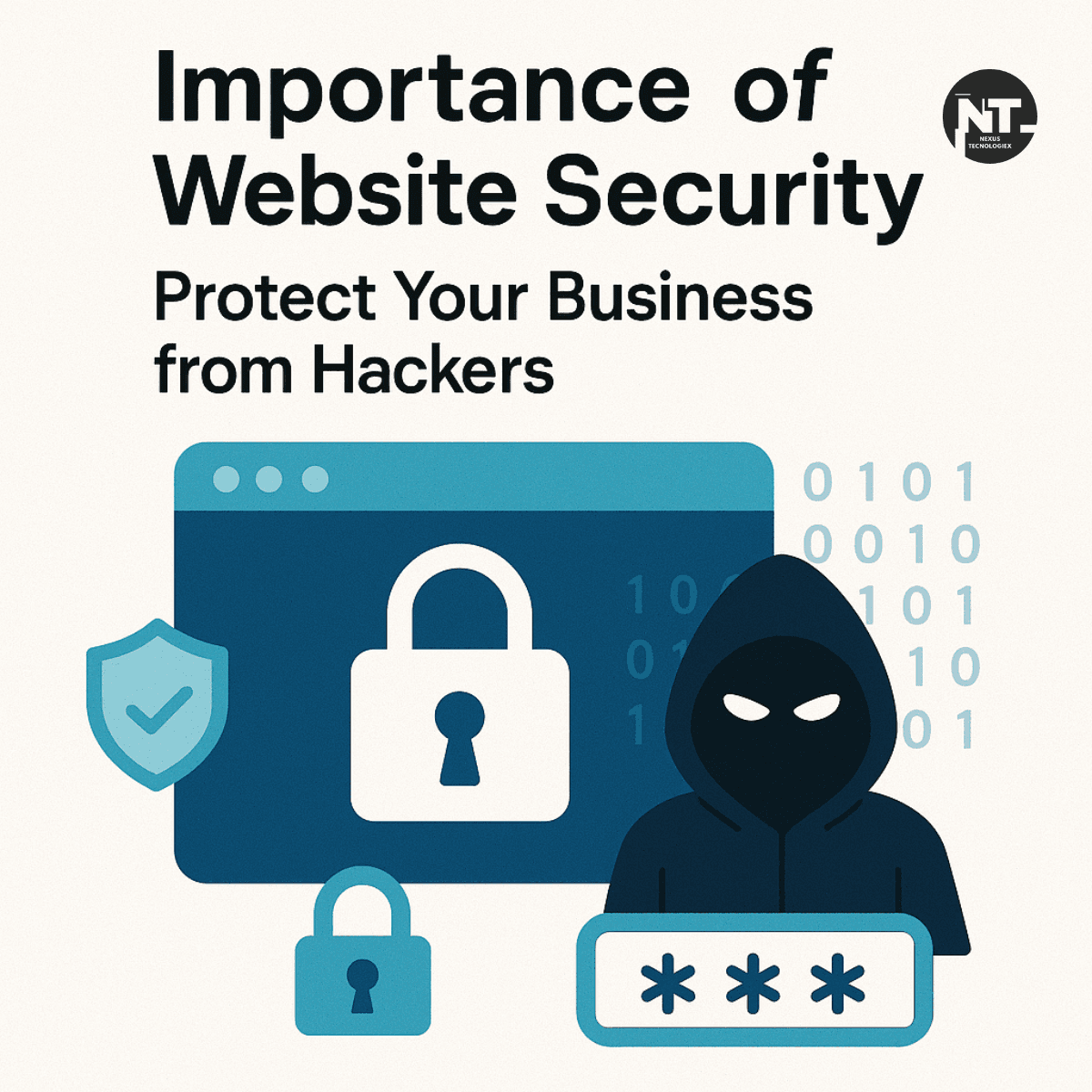In the wild frontier of the internet, your website is your storefront, fortress, and handshake all in one. It’s the place where first impressions are made and money changes hands—even while you sleep. But lurking just beneath the surface are digital bandits: bots, hackers, and cybercriminals who see your website not as a business—but as an opportunity.
Running an e-commerce store? They want your customers' credit cards. Running a SaaS app? They want your user data. Just a simple company portfolio? Don’t relax—they might still use it as a launchpad for phishing attacks. In 2025, hacking isn’t some rare disaster—it’s a daily reality, and your site might already be on someone's radar.
So no, website security isn’t just a technical detail. It’s a survival strategy.
In this post, we're digging deep: why security matters, what dangers you face, how hackers operate, and most importantly—what you can do to keep your digital gates locked.
Why Website Security Matters
When your website is secure, you protect your brand, your customers, and your revenue. Website security refers to the protective measures and protocols that safeguard a website from cyberattacks. This includes tools like HTTPS, firewalls, antivirus software, and secure coding practices.
Here’s why website security is critical:
-
Protects customer data: If you collect emails, passwords, or payment details, you’re responsible for keeping them safe.
-
Maintains trust and reputation: One data breach can destroy years of trust you've built with customers.
-
Prevents business disruption: A hacked site can be taken offline or blacklisted by Google, costing you traffic and revenue.
-
Avoids legal issues and fines: With regulations like GDPR and CCPA, data protection isn’t just best practice—it’s legally required.
Common Website Security Threats
Understanding the kinds of attacks your website may face is the first step in defending against them.
1. Malware Infections
Malware (malicious software) can be injected into your site by hackers. It may redirect users to other websites, steal data, or allow attackers to take control of your website.
2. Phishing Attacks
Hackers may exploit your site to send fake emails or create fake login pages that steal sensitive information from users.
3. DDoS Attacks (Distributed Denial of Service)
These attacks flood your website with traffic from multiple sources, causing it to crash or become inaccessible.
4. SQL Injections
Attackers exploit vulnerabilities in your database by injecting malicious SQL commands through input fields like forms or search bars.
5. Cross-Site Scripting (XSS)
Hackers use XSS to inject malicious scripts into webpages viewed by other users, often to steal session cookies or sensitive data.
6. Brute Force Attacks
Automated scripts attempt to guess your login credentials repeatedly until they get it right. Weak passwords make this easier.
How Security Breaches Impact Your Business
Even a minor breach can cause major problems:
-
Financial loss: You might lose sales, have to pay legal penalties, or hire professionals for damage control.
-
Loss of customer trust: Consumers are less likely to do business with a company that can’t secure their information.
-
Search engine penalties: Google can blacklist compromised sites, removing them from search results.
-
Damaged brand reputation: News of a security breach spreads fast and can permanently damage your public image.
Real-World Examples
-
British Airways (2018): A data breach affected over 400,000 customers. It cost the airline £20 million in fines due to GDPR violations.
-
Equifax (2017): One of the biggest data breaches ever, compromising 147 million records. Equifax paid over $700 million in settlements.
-
Small Business Reality: According to Verizon’s Data Breach Investigations Report, 43% of breaches in 2023 involved small businesses—many of which never recover.
How to Secure Your Website
The good news? You can prevent most attacks with proactive security measures. Here’s what to implement:
1. Use HTTPS and SSL Certificates
A secure site starts with an SSL certificate. It encrypts data between your website and users’ browsers. This is also important for SEO—Google prioritizes HTTPS websites.
2. Keep Software and Plugins Updated
Outdated CMS platforms, plugins, or themes often have known vulnerabilities. Always apply updates as soon as they're released.
3. Use Strong Passwords and 2FA
Weak passwords are an open door to your website. Use long, complex passwords and enable two-factor authentication (2FA) for all admin accounts.
4. Install Web Application Firewall (WAF)
A WAF filters, monitors, and blocks malicious traffic before it reaches your site.
5. Regular Backups
If the worst happens, backups allow you to restore your site quickly. Schedule automatic backups daily or weekly depending on your site’s update frequency.
6. Perform Regular Security Audits
Use tools like Sucuri or Wordfence to scan your site regularly for vulnerabilities and malicious code.
7. Secure Admin Panel Access
Change default login URLs, limit login attempts, and restrict admin access by IP if possible.
8. Educate Your Team
Your employees can be a major vulnerability. Train them on phishing scams, password hygiene, and safe online behavior.
Additional Tools and Resources
-
Sucuri – Website malware scanning and protection.
-
Cloudflare – DDoS protection, WAF, and CDN services.
-
Let's Encrypt – Free SSL certificates.
-
Google Search Console – Alerts you if your website is hacked or blacklisted.
-
Uptime Robot – Monitors if your website goes down.
Final Thoughts
Hackers don’t care whether your business is big or small. If your website has traffic, data, or a login form, it’s a target. Waiting until after an attack happens is too late. A proactive approach to website security protects your investment, your customers, and your reputation.
By understanding the risks and implementing the right strategies, you can focus on growing your business with confidence—knowing that your digital storefront is secure.

